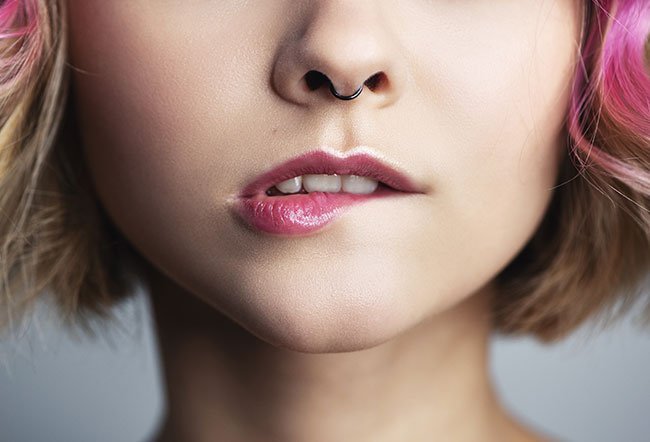What Does It Mean When You Bite Your Lips a Lot?

When people are nervous, it is normal for many to bite their lower lips. Lip biting can become a habit for some people, affecting their daily lives (also called chronic lip biting). People who have this nervous habit may develop lip complications, such as painful sores and redness.
Lip biting is a difficult habit to quit because it can become habitual to the point where the person is not even aware of it. There are, however, effective methods for breaking this bad habit.
Lip biting is caused by a variety of factors or triggers. A person uses their mouth for talking or chewing, so physical issues can lead them to accidentally bite their lips. In other circumstances, the source of the problem could be psychological or mental health issues. Biting one's lower lip can be a physical reaction to an emotional state, such as stress, fear, or anxiety.
What causes lip biting?
Causes of lip biting can be physical or psychological.
Physical causes of lip biting
Malocclusion or misalignment of the teeth includes overbite and underbite, both of which can result in tooth crowding and accidental biting.
Temporomandibular dysfunction (TMD) is a condition affecting the chewing muscles. Biting the lips, cheeks, or tongue is common in those with malocclusion or TMD. A dentist should be able to provide treatment alternatives, such as dental braces or the extraction of one or more teeth.
Psychological causes of lip biting
Chronic lip biting is an example of body-focused repetitive behavior (BFRB). This word refers to any self-directed behavior that harms the skin, hair, or nails regularly.
In instances where a person is uncomfortable or worried, BFRBs develop as a coping technique. Repetitive actions can provide comfort from painful emotions for people with the habit.
Studies have revealed that lip biting has been commonly associated with the three most prevalent habits, which are:
- Trichotillomania (hair pulling)
- Excoriation (skin-picking)
- Onychophagia (nail biting)
What are the signs and symptoms of lip biting?
Lip biting is generally a compulsive behavior. Therefore, a person may not realize they are doing it until their lips have been damaged.
Compulsive lip-biting may have no adverse effects for some people, but it can lead to issues in some, such as:
- Painful sores on the lips
- Swollen or inflamed lips
- Lip redness
Further complications can arise if the sores become infected or repeatedly reopen after more biting.
How is lip biting treated?
Lip biting treatments vary based on the cause. Physical factors, such as dental disorders, can be treated by a dentist fixing the underlying issue. Many people benefit from behavioral therapies when their lip biting is caused by a psychological issue. This may require sessions with a therapist to identify any underlying mental health issues.
Lip biting as the result of a body-focused repetitive behavior (BRFB) can be treated with the following:
- Cognitive-behavioral therapy.
- Conducting awareness training so that people realize their behavior when it comes.
- Offering social support, which can be crucial in assisting a person to relax and overcome nervous tendencies.
- Using a “lip bumper” can help break this habit in a few people, which is a device that keeps the lips and lower teeth away from each other.
Other behavioral therapy to stop biting may include:
- Habit reversal training: Reversal training is a technique for changing one's habits and works particularly well for BFRBs and tics.
- Medication: There are no specific drugs available to treat BFRBs currently. Some people may benefit from antidepressant and anti-obsessive drugs, such as clomipramine or selective serotonin reuptake inhibitors. Those who are simultaneously suffering from anxiety, depression, or obsessive-compulsive disorder may benefit from medication.
